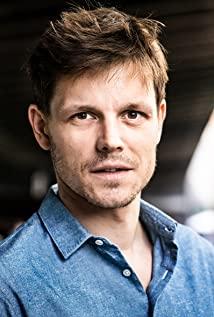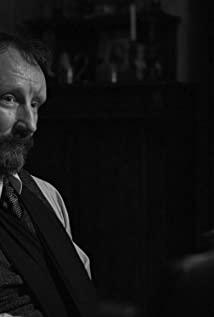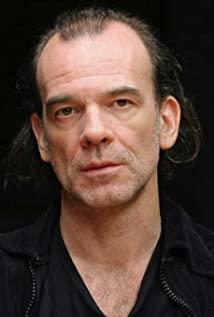(Spoiler) The protagonist of a spy war movie is not necessarily a muscular action hero, but a middle-aged man with a big belly. Günther, the protagonist of "Public Enemy Number One" (A Most Wanted Man), is a German intelligence officer who is good at espionage and defense; his work is not a punch to the flesh, but his sentence is heartfelt, because his professional skills are psychological strategies to obtain information . The "fat actor" Philip Seymour Hoffman plays Günther, a master of emotions, just right - he is not like 007 to steal a woman's heart romantically, but in order to complete the task, he uses all kinds of people who can use it interchangeably. It is a means of enticing people with profit, power with power, reason with reason, and emotion with emotion. This also created his dilemma, that he often had to make important judgments in a short period of time, without delay or error, because the consequences of making mistakes were very serious: "What if this person launches a bomb attack in the city center?" He must Clearly distinguish which information is reliable and which is not; which person is credible and which is not; on the other hand, he is also unreliable himself, often lying, and even manipulating others to deceive another person's feelings on his behalf in order to complete the task. What taught him most was that in the turbulent transnational political field, not only the West and the Middle East had conflicts, not only the "anti-terrorism" cooperation between the United States and Germany, but even Germany was responsible for the internal affairs of the country. There are struggles between departments. So what the whole play assembles is a game of trust/betrayal between all levels and units.
Günther looks like an average mid-level executive office worker: his swollen body indicates a lack of physical activity, a tired face indicates his heavy workload, and his constant alcohol and tobacco reflects chronic stress. He had failed an earlier mission, presumably because of his transfer to Hamburg, where a suspicious man from Chechnya, Issa (who was "of course" a Muslim) was found smuggling in. Günther believes that Issa did not come to instigate terrorist attacks, but it is of use value, which can help him find evidence of the philanthropist Abdullah financing foreign terrorist organizations. Another person who came to Issa was human rights lawyer Richter, who originally wanted to help him return to his normal life, but when he learned that the sentencing unit was targeting him, he assisted him in his escape. In vain with the powerful state apparatus, Günther caught Richter and asked her to lure Issa into the game to line up the big fish Abdullah. Turns out Issa was really taken, and that's precisely because he's not a terrorist. He had inherited a large fortune from his Russian father, but was ashamed to spend it, because his father was, according to his beliefs, a great sinner, and it was dirty money.
Günther asked Richter to induce him to donate the money to Abdullah to do good deeds, and then invited Jun into the urn. Günther's job is to deal with bad people, but instead he takes advantage of the goodness of others. Maybe he is also a little bit unhappy, and his heart is still a little warm, and he is willing to make conditions that Issa can get a passport and can live a "normal" life (even if it is destitute). To be honest, he was under pressure from his colleagues in Germany and abroad, who saw Issa as a real terrorist. That said, Günther is no different from the middle-level bureaucrats in other government departments. On the one hand, he still has the opportunity to reach the masses on the front line and feel their needs (he can even understand Abdullah's mentality and does not regard him as a villain), on the other hand On the other hand, bosses and various VIPs with higher status are more "off the ground", and they can only seek wiggle room in a limited space to satisfy all parties. Then his "emotional engineering" full of deceit is a slick means of retreating. As long as you don't go through the gang, wait until the light boat has passed thousands of mountains, and it may be the most perfect result in an imperfect world.
As a result, it turned out that Günther was the thread that was released. He thought he had gained the trust of the high-level people, but he was still not trusted, and the price was Richter's trust in him, and Issa's trust and affection for Richter-he gave her all the ornaments left by his mother! But the bigger price is that Issa, who has nothing but faith, may embark on the road of "jihad" from now on. "Public Enemy Number One" makes a powerful satire on the matter of "trust": Western "anti-terrorism" people regard credit as a tool like deception (just like the warrant card of the Hong Kong police, wear it if you like it or don't wear it if you don't like it). ), relatively speaking, the source of the "terror" of terrorists in their eyes is the belief that even their lives can be sacrificed. Günther's dilemma is that he was a little serious about the word "faith", but he made a career of deception, and ended up being deceived. He thought that he could achieve mutual trust by agreeing with the US diplomats who have cooperative relations, "We are all for a safer world." He is real, but the other party is fake, and his obsession with "trust" is an influence. key to his career. Is it safer or more terrifying in a world where people can only be promoted and rich? Many people say that the "war on terror" launched by Bush is a religious war. Public Enemy No. 1 tells us that it is actually a war of "anti-faith" at all.
View more about A Most Wanted Man reviews











